Housing Ponzi:
QUESTION
A reversal of the two-speed economy now sees residential construction in the eastern states driving the nation’s prosperity. But some have likened the current housing boom in Sydney and Melbourne to a population Ponzi scheme, and housing affordability is a major problem. How long does the panel think that housing and population growth can continue to make up for mining and manufacturing? And is it time for a rethink of the generous tax concessions offered by negative gearing?
TONY JONES
I’ll start with Penny Wong, because that is a specific policy of the Labor Party.
PENNY WONG
Well, I mean, we have a view, and I think, you know, a fair few people have backed it in, frankly, that you don’t have a serious housing affordability policy unless you tackle negative gearing and capital gains tax. We have some of the most generous tax incentives in the world for investors. We have a very small proportion of new owners…of housing being bought by first-home buyers. We’ve got very large numbers of proportion of investors in the market. Something’s got to give, and if we don’t tackle the tax incentives, which really don’t level… which skew the playing field towards investors, then you really don’t have a housing affordability policy. And the extraordinary thing is that we saw the Treasurer today giving a speech on housing affordability where the single biggest area which he needs to address was off the table for political reasons, not for policy reasons.
TONY JONES
You mean negative gearing?
PENNY WONG
Negative gearing, yes. Because they want to be able to belt us about it rather than actually have a sensible discussion about the policy.
TONY JONES
Just a very brief one. The Australian ran up the flag pole the idea that Morrison, the Treasurer, would talk in that speech about the idea of super funds for first-home buyers being able to be raided to pay for housing, or at least to give a deposit.
PENNY WONG
Well, this is the idea that Malcolm Turnbull himself has described as a thoroughly bad idea, and I agree with him, because if you’re saying to people, “Raid your retirement savings,” which is what it is, to purchase a house, it seems to me pretty bad economic policy.
TONY JONES
OK. Mitch Fifield?
MITCH FIFIELD
Thanks, Tony. Thanks, David. Negative gearing, ultimately, is a way of getting a tax deduction for an expense incurred in earning income. That’s what negative gearing is.
TONY JONES
If you already own a house, to be precise.
MITCH FIFIELD
Yeah, but that is…that’s part of our system of taxation. What we have great difficulty with is Labor presenting negative gearing as though it somehow magically solves the housing shortage and housing affordability. It wouldn’t. It’s something that people have made investment decisions based upon, so you don’t want to go changing these things lightly. Overwhelmingly, the single greatest contributor to the housing affordability issue is land supply, is a lack of land in the right places, is zoning restrictions that make it difficult to develop, is red tape that makes it difficult for housing estates. And also, importantly, having infrastructure, like transport in the right places. That’s… Those things together probably make the greatest contribution.
TONY JONES
Mitch, I’ll come back to you. I will come back to you.
MITCH FIFIELD
One point….
TONY JONES
I will come back to you, but make your quick point.
MITCH FIFIELD
Just a quick point. Ultimately, this is a shared endeavour between federal, state and local governments, which is why the Treasurer has indicated that, in the Budget, we will have measures where the Commonwealth can make a contribution to doing something about this issue.
PENNY WONG
Two very quick points. One, Mitch talks about retrospectivity. Our policy was no retrospectivity, so existing assets would be continued to be treated the same. What we wanted to do was restrict negative gearing to new housing to try and pull on supply. But the second point, the Government never answers – why should somebody buying their seventh house have a better…have more tax incentives than someone buying their first?
(APPLAUSE)
TONY JONES
I’ll let you respond to this question, you obviously want to, and then I’ll go to…
NIKKI GEMMELL
I just feel like this is one of the great political tragedies, housing affordability, of this generation. As a mother of four kids, I just despair that my children will ever be able to live in the same city as me. But then what I’m also noticing around me, in terms of my peers in their 40s, 50s, 60s, there a lot of people around me who are still renting, who have never been able to make that leap into the great Australian dream of owning their own plot or block, whatever it is. And I just think that’s so sad. We’re facing worlds of retrenchment, of jobs that aren’t secure anymore, of situations where pension funds… You know, we don’t have the super to pay into our pension funds. I just feel like this is a huge ticking time bomb and we don’t only need to talk about the younger generation, it’s the older generation as well, heading into their pension years and still renting.
TONY JONES
I’ll come to you, I will, I just want to… The Great Britain has had a similar experience.
NIKKI GEMMELL
The Great Britain.
BILLY BRAGG
Yeah. We do, we do have.
TONY JONES
The Great Britain, or Great Britain. I mean, the massive price inflation of housing in London has forced a huge number of people out of the city.
BILLY BRAGG
It’s right across the country, really. I think the average house price now is over eight times more than the median disposable income for the average family, average median income. And this has had a considerable knock-on effect. One of the reasons why is because people who no longer can make any money on savings, or rely on a pension, are buying houses to rent to people. I don’t know if they’re the second homes you’re talking about. Are they being bought to rent out or are they being bought to live in?
TONY JONES
Mostly by investors to rent.
BILLY BRAGG
Yeah. We call it buy-to-rent. It’s the same sort of thing. And obviously, as a renter, you do get certain tax breaks and the people that you’re…renting the houses out don’t have a great deal of protection. This has become a very big issue. And as you said, we also have the situation where many of our key workers – our teachers, our firefighters, our nurses – are having to live outside of the cities where they’re working. It’s a considerable problem. 50% of the land that gets permission to be built on isn’t built on. The amount of affordable housing that’s built on there is dwindling all the time because of the huge profits to be made in selling up-market houses. It’s a real situation. We should be building more houses. And at the moment, the local councils are not allowed to build houses. Now the Government wants housing associations – and they’re the people that replaced the councils for building affordable housing – they’re going to compel housing associations to sell their houses on the free market. It’s ridiculous.
TONY JONES
OK, Mitch Fifield, should this not be treated as a national emergency, and would you not get credit if you did that? A government often said to have little vision, a government going down in the polls, could actually make a huge…well, impact, by doing something like that, but it never happens.
MITCH FIFIELD
Well, to the contrary, the Treasurer and the Prime Minister have indicated that housing affordability is high priority for the Government. That’s why we’re going to have a plan in the Budget. And we’ve got to look at all elements because housing availability isn’t just about home ownership, it’s about rental affordability, it’s about social housing, it’s about homelessness. You need to have a comprehensive package that addresses all of those elements, but you also need the cooperation of the state governments and local governments. As I said before, it’s a shared endeavour of all levels of government, and it’s something that we’re going to have a lot more to say about in the Budget.
TONY JONES
OK, it’s time to move along.
As you can see, not one panelist even mentioned the central part of the question pertaining to Melbourne and Sydney housing being a “population Ponzi scheme”, nor whether it is sustainable. Nor did Tony Jones do his usual thing and bring guests back onto the key point of the question.
Hopelessly biased ABC.
 Whatever the Left and Right spins, I have my own view on Pres. Trump's firing FBI Director Jim Comey.
Whatever the Left and Right spins, I have my own view on Pres. Trump's firing FBI Director Jim Comey.
 After years of residents battling to preserve Frankston Reservoir as a safe habitat for indigenous flora and fauna by preventing it being used for boating, biking etc, instead keeping it for passive enjoyment of nature, the latest Frankston ALP member has clawed it back under the management of the
After years of residents battling to preserve Frankston Reservoir as a safe habitat for indigenous flora and fauna by preventing it being used for boating, biking etc, instead keeping it for passive enjoyment of nature, the latest Frankston ALP member has clawed it back under the management of the 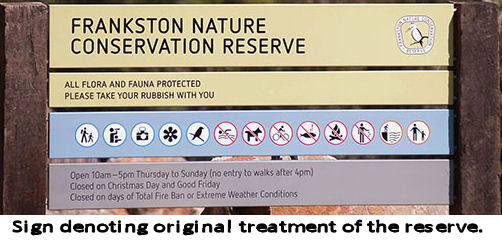
 There is a piece going round, signed by 'Anon', which lists well-known facts about a Deep State organisation which is supposed to be funding Macron. It says, for instance, that Macron joined the Fondation Jean Jaures in 2006 and that this association is a puppet of the National Endowment for Democracy. Indeed, if you look at their political partners' website, you can see that
There is a piece going round, signed by 'Anon', which lists well-known facts about a Deep State organisation which is supposed to be funding Macron. It says, for instance, that Macron joined the Fondation Jean Jaures in 2006 and that this association is a puppet of the National Endowment for Democracy. Indeed, if you look at their political partners' website, you can see that 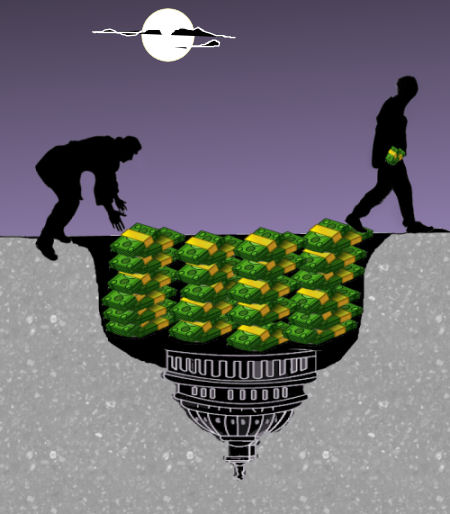
 As the moderators summed up, Le Pen and Macron hold irreconcilably different points of view. This was a battle between a nationalist representing the French as a people and an ex-banker representing the global elite with all the support of banks, the mainstream media, the EU and the US-NATO bloc. Marine Le Pen is a highly skilled barrister, versed in criminal law, who was raised in anti-establishment politics, but one cannot help think of Joan of Arc trying to fight off the English here.
As the moderators summed up, Le Pen and Macron hold irreconcilably different points of view. This was a battle between a nationalist representing the French as a people and an ex-banker representing the global elite with all the support of banks, the mainstream media, the EU and the US-NATO bloc. Marine Le Pen is a highly skilled barrister, versed in criminal law, who was raised in anti-establishment politics, but one cannot help think of Joan of Arc trying to fight off the English here.
 Anyone that lives in Sydney or Melbourne will have experienced the crippling rise in congestion on our transport networks first hand. Morning and evening peaks now run for hours, traffic is forever thick on the weekends, and the time taken to travel from point A to point B now takes longer than ever. Article originally published at
Anyone that lives in Sydney or Melbourne will have experienced the crippling rise in congestion on our transport networks first hand. Morning and evening peaks now run for hours, traffic is forever thick on the weekends, and the time taken to travel from point A to point B now takes longer than ever. Article originally published at 


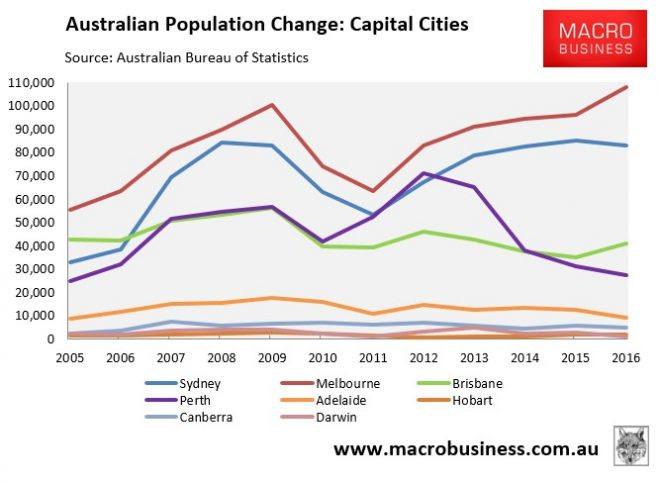
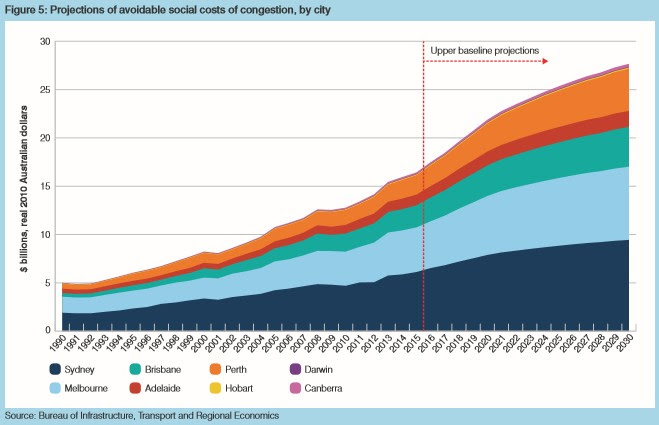
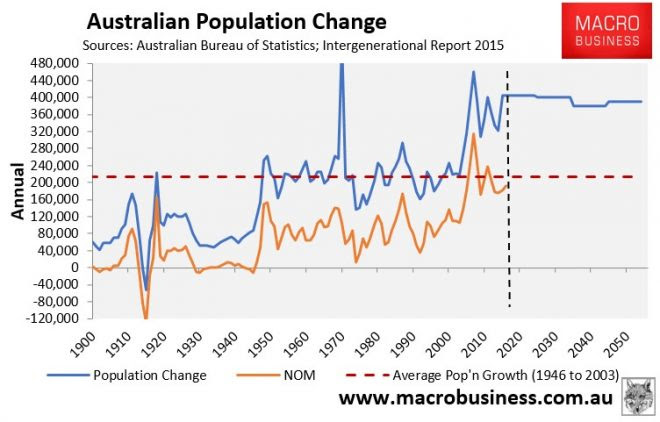

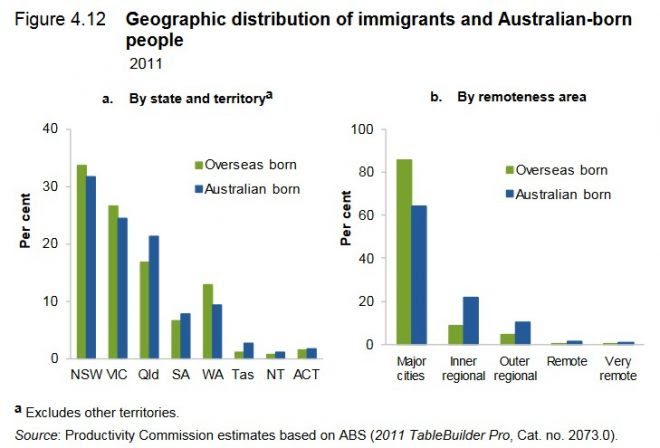

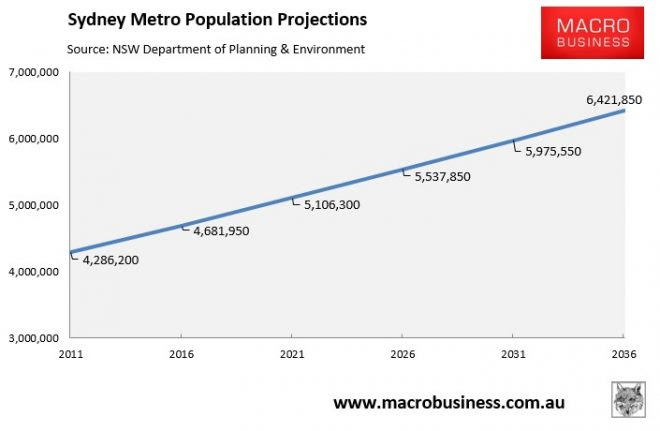
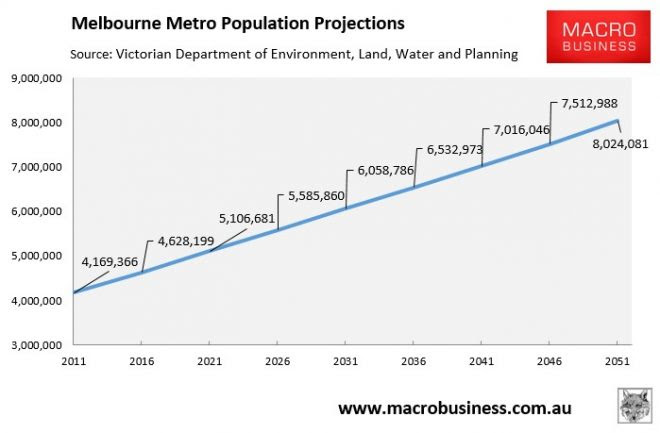

 Unexpectedly Nicolas Dupont-Aignan, the president of the Stand up France (Debout la France) has backed Marine Le Pen for President of France. He feels that France must be saved from Macron's savage globalism and believes that many Republicans will join him in this. One can see that on the face of it, Le Pen has slightly fewer prospective votes than Macron, if you go by the form on the nine candidates who didn't make it to the second round and how their voters might now vote. But Le Pen is running a superb campaign and elite favorite, Emmanuel Macron has already tripped over his highly publicised very expensive shoes. As Le Pen has implied, now that the field has narrowed, people will be able to see both candidates more clearly. [The original title of this article was "Le Pen's chances as President improve as Stand Up France's leader backs her & Macron looms."]
Unexpectedly Nicolas Dupont-Aignan, the president of the Stand up France (Debout la France) has backed Marine Le Pen for President of France. He feels that France must be saved from Macron's savage globalism and believes that many Republicans will join him in this. One can see that on the face of it, Le Pen has slightly fewer prospective votes than Macron, if you go by the form on the nine candidates who didn't make it to the second round and how their voters might now vote. But Le Pen is running a superb campaign and elite favorite, Emmanuel Macron has already tripped over his highly publicised very expensive shoes. As Le Pen has implied, now that the field has narrowed, people will be able to see both candidates more clearly. [The original title of this article was "Le Pen's chances as President improve as Stand Up France's leader backs her & Macron looms."]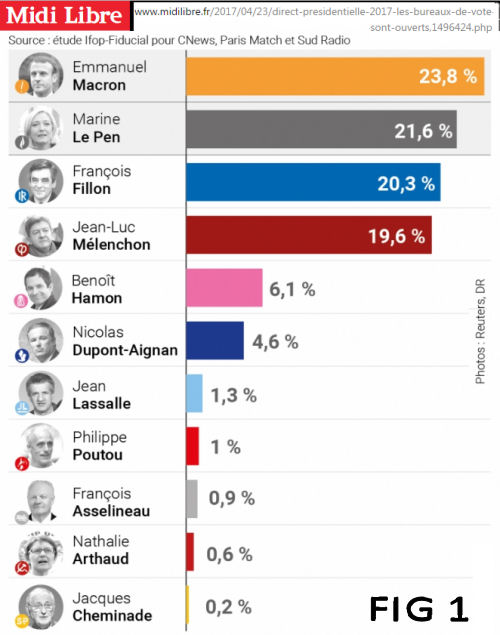
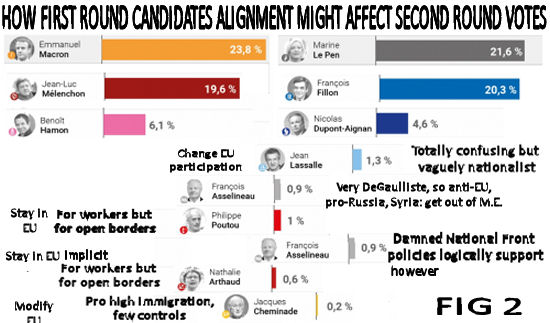
 Brigitte Bardot, possibly once the most famous 20th century French woman, has devoted her later life to the welfare of other species, via the
Brigitte Bardot, possibly once the most famous 20th century French woman, has devoted her later life to the welfare of other species, via the 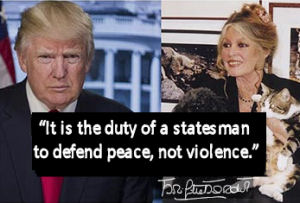
 Are you aware that Wilsons Prom is under threat from private interests again? This time they want to base a commercial boat tour operation at Tidal River. If you've ever visited the Prom, you will be familiar with the northern end of Norman Bay where the Tidal River estuary spills out across the wide flat beach. It is no exaggeration to say that this is the most popular beach for visitors to the Prom and a playground for children and families. This same spot is to be taken over by Pennicott Wilderness Journeys with 3 large amphibious boats (12m x 4m) which will take up to 32 passengers each on a 2 hour tour of the marine park. The boats will ride up onto the beach to load and unload their passengers - "Outta the way kids!" See also:
Are you aware that Wilsons Prom is under threat from private interests again? This time they want to base a commercial boat tour operation at Tidal River. If you've ever visited the Prom, you will be familiar with the northern end of Norman Bay where the Tidal River estuary spills out across the wide flat beach. It is no exaggeration to say that this is the most popular beach for visitors to the Prom and a playground for children and families. This same spot is to be taken over by Pennicott Wilderness Journeys with 3 large amphibious boats (12m x 4m) which will take up to 32 passengers each on a 2 hour tour of the marine park. The boats will ride up onto the beach to load and unload their passengers - "Outta the way kids!" See also: 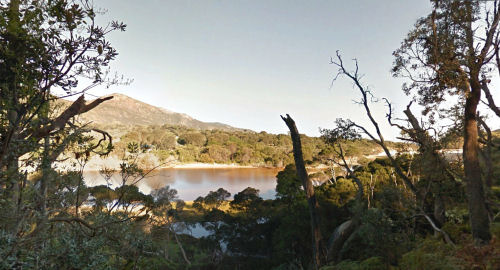
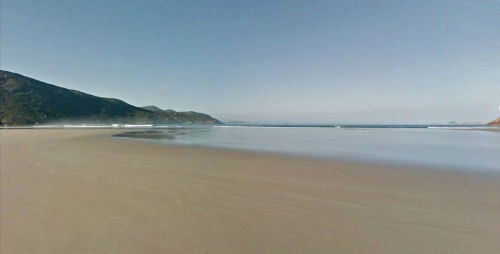

 The quotes below are taken from
The quotes below are taken from
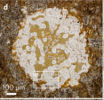 Researchers have discovered microfossils resembling fungi in lavas that erupted on the seafloor 2.4 billion years ago, representing the oldest evidence of fungal life.
Researchers have discovered microfossils resembling fungi in lavas that erupted on the seafloor 2.4 billion years ago, representing the oldest evidence of fungal life.
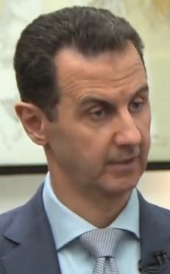
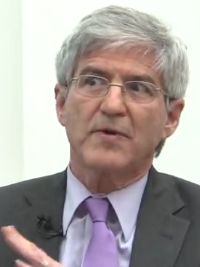
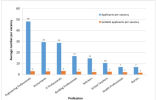 Unbelievably, the party that is supposed to safeguard the Australian environment – The Australian Greens – is trying to scuttle the Turnbull Government’s modest changes to so-called ‘skilled’ 457 visas. From
Unbelievably, the party that is supposed to safeguard the Australian environment – The Australian Greens – is trying to scuttle the Turnbull Government’s modest changes to so-called ‘skilled’ 457 visas. From 
 Mary Drost, (Convenor of Planning Backlash Inc), Joanna Stanley (Brunswick Residents Group), and Ann Reid (Convenor of Malvern East Group) met VCAT President Justice Greg Garde on Wednesday April 18. One of our objectives in having this meeting was to persuade him to arrange a forum for residents such as the ones previously arranged by Justice Kevin Bell and Iain Ross some years ago. Both of those men had actually listened to residents and had approached the then Attorney General to have some changes made to procedure so the "natural justice" would get more attention in the Planning and Environment section of VCAT than had previously been the case. Alas, apart from two minor changes no actual reform was permitted.
Mary Drost, (Convenor of Planning Backlash Inc), Joanna Stanley (Brunswick Residents Group), and Ann Reid (Convenor of Malvern East Group) met VCAT President Justice Greg Garde on Wednesday April 18. One of our objectives in having this meeting was to persuade him to arrange a forum for residents such as the ones previously arranged by Justice Kevin Bell and Iain Ross some years ago. Both of those men had actually listened to residents and had approached the then Attorney General to have some changes made to procedure so the "natural justice" would get more attention in the Planning and Environment section of VCAT than had previously been the case. Alas, apart from two minor changes no actual reform was permitted. Dr Paul Craig Roberts is interviewed by Julian Charles of The Mind Renewed, UK, for his explanation of President Trump's about turn on all foreign policy. The conclusion is that Trump has been sidelined and others have taken over his role at the White House. The term 'coup d'etat' is not used, but that is what is assumed. Paul Craig Roberts also suggests that the only hope of reducing the United States' dangerous power is for Europe to decouple from it. He says that we cannot hold out hope for the UK to do anything because they are completely tied to the United States, but that if the anti-globalist parties, notably the French National Front, win in Europe, there is some hope that Europe will draw back from the USA-dominated EU. Australia and Canada are held responsible, along with some European leaders, for inexplicably enabling this dangerous situation by supporting the United States in its illegal wars. First Published on Saturday, 22 April 2017 20:50 at
Dr Paul Craig Roberts is interviewed by Julian Charles of The Mind Renewed, UK, for his explanation of President Trump's about turn on all foreign policy. The conclusion is that Trump has been sidelined and others have taken over his role at the White House. The term 'coup d'etat' is not used, but that is what is assumed. Paul Craig Roberts also suggests that the only hope of reducing the United States' dangerous power is for Europe to decouple from it. He says that we cannot hold out hope for the UK to do anything because they are completely tied to the United States, but that if the anti-globalist parties, notably the French National Front, win in Europe, there is some hope that Europe will draw back from the USA-dominated EU. Australia and Canada are held responsible, along with some European leaders, for inexplicably enabling this dangerous situation by supporting the United States in its illegal wars. First Published on Saturday, 22 April 2017 20:50 at 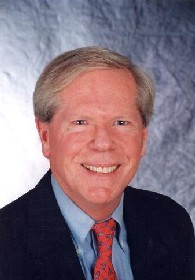

 To many it might seem strange that Donald Trump's recent departure from his election promises has made me think of Marcel Aymé's story about a character in a book who wanted to avoid her destiny. What could a French author of absurd comical novels have to do with the political analysis of Donald Trump's strange about-face from the foreign policy he promised before his election? Marcel Ayme, in "Le Romancier Martin," the first story in Derriere chez Martin, writes of a novelist who developed a bad habit of killing off most of his principal characters and even some less important ones, which made very depressing reading and diminished sales. The characters themselves and Martin's editor complained that their life expectancy was grossly inferior to that of characters in other novels. Madame Soubiron, the wife of a principal character, somehow sensing that she would be next to die, decided to challenge her fate. First she visited the writer and begged him to make certain changes, but he claimed to have little say in what his characters did. Once he had created them, he said, the die was cast. Although it seemed impossible for a mere fictitious character to influence her role, Mrs Soubiron ultimately managed this by deviating from what was expected of her in strange and unusual ways which the novelist could not have considered in advance. For instance, one evening at dinner, she took off her shoe and put it on her plate. Instead of eating the slice of beef she had served herself, she dropped it down the front of her dress and rubbing her stomach, mimed how tasty it was. As she continued to act more and more absurdly out of character, she eventually escaped death.
To many it might seem strange that Donald Trump's recent departure from his election promises has made me think of Marcel Aymé's story about a character in a book who wanted to avoid her destiny. What could a French author of absurd comical novels have to do with the political analysis of Donald Trump's strange about-face from the foreign policy he promised before his election? Marcel Ayme, in "Le Romancier Martin," the first story in Derriere chez Martin, writes of a novelist who developed a bad habit of killing off most of his principal characters and even some less important ones, which made very depressing reading and diminished sales. The characters themselves and Martin's editor complained that their life expectancy was grossly inferior to that of characters in other novels. Madame Soubiron, the wife of a principal character, somehow sensing that she would be next to die, decided to challenge her fate. First she visited the writer and begged him to make certain changes, but he claimed to have little say in what his characters did. Once he had created them, he said, the die was cast. Although it seemed impossible for a mere fictitious character to influence her role, Mrs Soubiron ultimately managed this by deviating from what was expected of her in strange and unusual ways which the novelist could not have considered in advance. For instance, one evening at dinner, she took off her shoe and put it on her plate. Instead of eating the slice of beef she had served herself, she dropped it down the front of her dress and rubbing her stomach, mimed how tasty it was. As she continued to act more and more absurdly out of character, she eventually escaped death.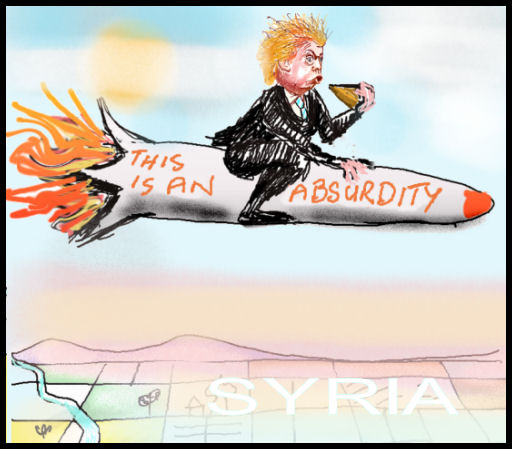
 This letter to a high profile pacifist on a Canadian peace activism email list highlights the problem within the international peace movement where some 'leaders' turn a blind eye to the egregious flouting of international law by the United States, NATO and their allies. You would think that peace activists would be highly informed on the propaganda aspect of war, and the role of mainstream press in this, but it seems that this basic education is lacking even in the upper echelons of the movement. By ignoring the illegality of recent attacks on Syria, some in the movement have again helped brutal Takfiris in their effort to take-over secular Syria. Peggy Mason is President of the Rideau Institute of which Ceasefire Canada is an arm. Ken Stone is Treasurer, of the Canadian Hamilton Coalition To Stop The War.
This letter to a high profile pacifist on a Canadian peace activism email list highlights the problem within the international peace movement where some 'leaders' turn a blind eye to the egregious flouting of international law by the United States, NATO and their allies. You would think that peace activists would be highly informed on the propaganda aspect of war, and the role of mainstream press in this, but it seems that this basic education is lacking even in the upper echelons of the movement. By ignoring the illegality of recent attacks on Syria, some in the movement have again helped brutal Takfiris in their effort to take-over secular Syria. Peggy Mason is President of the Rideau Institute of which Ceasefire Canada is an arm. Ken Stone is Treasurer, of the Canadian Hamilton Coalition To Stop The War.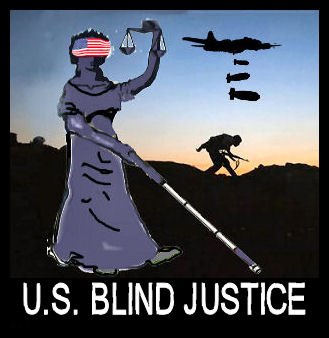
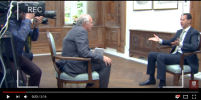 I have transcribed the text from an abbreviated version of President Bashar al-Assad's interview in the embedded video, which was released on 13 April 2017. The guts of President Bashar al-Assad's response to world allegations that Syria's national army attacked civilians with chemical weapons is that the Syrian Arab Army was not in the area at 6-6.30 am when Al-Quaeda alleges a chemical weapons attack took place, they were there around 11.30-12.00hrs. The area had no strategic value for them. Syria got rid of its chemical weapons arsenal in 2013, under international supervision, so what was the army supposed to have used? At the time of the alleged attack, the Syrian Army had the terrorists [Al-Quaeda/ISIS] on the run so why would they [invite punishment from the world community] in carrying out a senseless act with chemical weapons of no strategic importance, if they actually had chemical weapons, which they deny? The film of the alleged incident shows rescuers without any masks or other safety equipment supposedly dealing with people affected by toxic gas that is fatal on contact. Trump's U-turn on foreign intervention policy and US action on the fabricated incident shows that the president has no real power and that the United States is run by the Deep State. Text of statements are under the video inside this article. This transcription is provided because President Assad's English in the abbreviated version is not always completely clear. The entire interview, with English subtitles, is to be found at the bottom of my transcript of the shorter version. It is well worth listening to!
I have transcribed the text from an abbreviated version of President Bashar al-Assad's interview in the embedded video, which was released on 13 April 2017. The guts of President Bashar al-Assad's response to world allegations that Syria's national army attacked civilians with chemical weapons is that the Syrian Arab Army was not in the area at 6-6.30 am when Al-Quaeda alleges a chemical weapons attack took place, they were there around 11.30-12.00hrs. The area had no strategic value for them. Syria got rid of its chemical weapons arsenal in 2013, under international supervision, so what was the army supposed to have used? At the time of the alleged attack, the Syrian Army had the terrorists [Al-Quaeda/ISIS] on the run so why would they [invite punishment from the world community] in carrying out a senseless act with chemical weapons of no strategic importance, if they actually had chemical weapons, which they deny? The film of the alleged incident shows rescuers without any masks or other safety equipment supposedly dealing with people affected by toxic gas that is fatal on contact. Trump's U-turn on foreign intervention policy and US action on the fabricated incident shows that the president has no real power and that the United States is run by the Deep State. Text of statements are under the video inside this article. This transcription is provided because President Assad's English in the abbreviated version is not always completely clear. The entire interview, with English subtitles, is to be found at the bottom of my transcript of the shorter version. It is well worth listening to! Unconventional Economist, Leith van Onselen again takes the ABC to task over its shocking bias in reporting and discussing the impacts of Australia's population growth. In this case he exposes the failure of political guests and the moderator on Q&A to respond to the core of an importance audience question about Australia's population ponzi and housing unaffordability. Article first published on Macrobusiness on April 13, 2017 at
Unconventional Economist, Leith van Onselen again takes the ABC to task over its shocking bias in reporting and discussing the impacts of Australia's population growth. In this case he exposes the failure of political guests and the moderator on Q&A to respond to the core of an importance audience question about Australia's population ponzi and housing unaffordability. Article first published on Macrobusiness on April 13, 2017 at 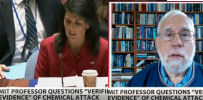 MIT Professor Theodor Postol suggests two inquiries into alleged 'verified evidence' of chemical attack by Assad in Syria: One international probably under the UN, where the Russians and Americans can provide their input and a second American investigation to find out how such a false report could be generated at the highest levels of the US government. "This is very serious. This confrontation with Russia has some potential to escalate and, if it's escalating over false intelligence claims, that is very serious."
MIT Professor Theodor Postol suggests two inquiries into alleged 'verified evidence' of chemical attack by Assad in Syria: One international probably under the UN, where the Russians and Americans can provide their input and a second American investigation to find out how such a false report could be generated at the highest levels of the US government. "This is very serious. This confrontation with Russia has some potential to escalate and, if it's escalating over false intelligence claims, that is very serious." Australian politicians and mainstream journalists seem almost as one in their approval of worsening relations between the two major nuclear powers: Russia and China. Yet a sane person would ask what is so good about this? In the embedded video, Tucker Carlson, US journalist, goes to the US Democrats to find out why they are so keen for the US to pick a fight with Russia. The responses from Alfred E. Mottur, lawyer and Democrat Strategist, who has worked for Mayor Rubio and Hillary Clinton are informatively superficial and illogical. It does seem that the tail wagging the US political dog has lost contact with its brain.
Australian politicians and mainstream journalists seem almost as one in their approval of worsening relations between the two major nuclear powers: Russia and China. Yet a sane person would ask what is so good about this? In the embedded video, Tucker Carlson, US journalist, goes to the US Democrats to find out why they are so keen for the US to pick a fight with Russia. The responses from Alfred E. Mottur, lawyer and Democrat Strategist, who has worked for Mayor Rubio and Hillary Clinton are informatively superficial and illogical. It does seem that the tail wagging the US political dog has lost contact with its brain. Days of incessant propaganda from the ABC, SBS and all other mainstream media toeing the Trump/US Establishment line on chemical weapons in Syria, without any overt logical basis, prompted the author to make a complaint. David Macilwain was in Syria in 2010, corresponds internationally with diverse people concerned about Syria's rights, and has visited Russia twice in the past three years, in a quest to discuss and share views on current events and to build up contacts who might be interviewed by the Australian press rather than the narrow sample usually referred to.
Days of incessant propaganda from the ABC, SBS and all other mainstream media toeing the Trump/US Establishment line on chemical weapons in Syria, without any overt logical basis, prompted the author to make a complaint. David Macilwain was in Syria in 2010, corresponds internationally with diverse people concerned about Syria's rights, and has visited Russia twice in the past three years, in a quest to discuss and share views on current events and to build up contacts who might be interviewed by the Australian press rather than the narrow sample usually referred to. As we watch the mainstream newsmedia step up their promotion of western government narrative in a kangaroo court on President Assad, more and more high profile people are coming out saying how implausible the mainstream line is. Those people deserve our support because the mainstream newsmedia and government are going after them precisely in order to deprive the rest of us of informed debate. One example in Australia is how the Sydney Morning Herald has published an article citing infotainment and advertising placement specialists, Associated Press, and PolitiFact, a corporate press network propaganda outfit, as authorities condemning Professor Tim Anderson's work as 'conspiracy theory', implying the same for some associated academics. Tim Anderson is in a unique position to judge conspiracy, having been convicted then freed after a conspiracy portrayed him as guilty over the 1978 Hilton Hotel bombing in Sydney. It is thought that the Australian Government organised the Hilton Bombing as a false flag. See
As we watch the mainstream newsmedia step up their promotion of western government narrative in a kangaroo court on President Assad, more and more high profile people are coming out saying how implausible the mainstream line is. Those people deserve our support because the mainstream newsmedia and government are going after them precisely in order to deprive the rest of us of informed debate. One example in Australia is how the Sydney Morning Herald has published an article citing infotainment and advertising placement specialists, Associated Press, and PolitiFact, a corporate press network propaganda outfit, as authorities condemning Professor Tim Anderson's work as 'conspiracy theory', implying the same for some associated academics. Tim Anderson is in a unique position to judge conspiracy, having been convicted then freed after a conspiracy portrayed him as guilty over the 1978 Hilton Hotel bombing in Sydney. It is thought that the Australian Government organised the Hilton Bombing as a false flag. See 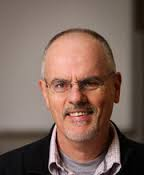 How shallow the ABC’s Mediawatch (‘Media war over Syria’ [11 April 2017]) treats such an important issue, the 6 year long war against Syria. They have cobbled together a few tweets so as to defend the war story of the US and Australian Governments, and the state and corporate media (ABC, BBC and UK Guardian) which faithfully reflect that line.
How shallow the ABC’s Mediawatch (‘Media war over Syria’ [11 April 2017]) treats such an important issue, the 6 year long war against Syria. They have cobbled together a few tweets so as to defend the war story of the US and Australian Governments, and the state and corporate media (ABC, BBC and UK Guardian) which faithfully reflect that line. They then randomly add a few tweets from me, a couple of other writers and the crazy right winger Alex Jones. I’m not sure what they wanted to achieve, but does this have anything do with Mediawatch’s supposed mission of holding the media to account? I think not.
They then randomly add a few tweets from me, a couple of other writers and the crazy right winger Alex Jones. I’m not sure what they wanted to achieve, but does this have anything do with Mediawatch’s supposed mission of holding the media to account? I think not.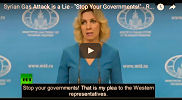 On April 7th, US warships delivered an illegal blow to a Syrian airbase in Homs. Their justification was the recent "chemical weapon" attack on behalf of the Syrian government in Idlib. The Kremlin condemned the strike as an act of aggression against a sovereign state, and a violation of international law. Meanwhile, at the UN, representatives of Western governments attempt to push through a resolution that is based on information taken out of thin air. It includes the removal of Assad, whether or not he was behind the attack. CBS News reporter: Russia says that the airstrike on Khan Sheikhun took place between 11.30 and 12.30 pm. Medics on the ground say that the hit happened hours before that. How so? This is one fascinating question posed to Russian foreign affairs minister, Maria Zakharovna at a press conference on 5 April 2017. See inside the article.
On April 7th, US warships delivered an illegal blow to a Syrian airbase in Homs. Their justification was the recent "chemical weapon" attack on behalf of the Syrian government in Idlib. The Kremlin condemned the strike as an act of aggression against a sovereign state, and a violation of international law. Meanwhile, at the UN, representatives of Western governments attempt to push through a resolution that is based on information taken out of thin air. It includes the removal of Assad, whether or not he was behind the attack. CBS News reporter: Russia says that the airstrike on Khan Sheikhun took place between 11.30 and 12.30 pm. Medics on the ground say that the hit happened hours before that. How so? This is one fascinating question posed to Russian foreign affairs minister, Maria Zakharovna at a press conference on 5 April 2017. See inside the article. 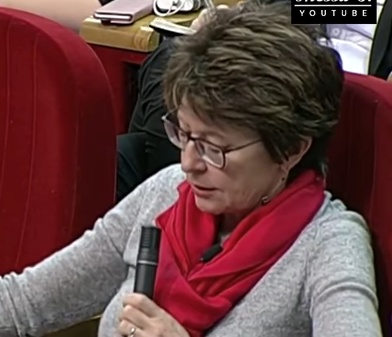
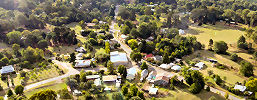 The Stanley Plateau nestled in the foothills of the Victorian Alps, is fighting for the right to preserve its water resources from extraction by a company that transports the water to a plant in Albury, across the border in NSW, for bottling. The bottled water from Stanley and surrounding areas is for domestic and overseas distribution processed by a multi-national company. Stanley has commenced fund raising for the next stage of the Cue Springs Water Challenge - an appeal to the Victorian Court of Appeal. The website
The Stanley Plateau nestled in the foothills of the Victorian Alps, is fighting for the right to preserve its water resources from extraction by a company that transports the water to a plant in Albury, across the border in NSW, for bottling. The bottled water from Stanley and surrounding areas is for domestic and overseas distribution processed by a multi-national company. Stanley has commenced fund raising for the next stage of the Cue Springs Water Challenge - an appeal to the Victorian Court of Appeal. The website  Lee Ann McAdoo and Owen Shroyer do a fantastic in depth analysis of the history and current stories on chemical weapon use in Syria. The best I have seen. And they take Trump to task. And finger McCain. Alex Jones, who produces Infowars, has been an ardent Trump supporter and some people feared he might get his journalists to pull their punches on Trump if Trump stepped out of line, but this is disproven here.
Lee Ann McAdoo and Owen Shroyer do a fantastic in depth analysis of the history and current stories on chemical weapon use in Syria. The best I have seen. And they take Trump to task. And finger McCain. Alex Jones, who produces Infowars, has been an ardent Trump supporter and some people feared he might get his journalists to pull their punches on Trump if Trump stepped out of line, but this is disproven here. The French system just pulled off a remarkable 11 candidate debate. Lasting nearly four hours, it was riveting viewing. Six less-knowns challenged the five established candidates, intellectually even if their presidential chances remain far behind. Most made valid and sometimes impressive points. As now nearly all the major contenders have adapted aspects of her policies, Marine Le Pen, ex-criminal trial-lawyer, who makes mincemeat of most interviewers, hardly stood out in the crowd of copycats.
The French system just pulled off a remarkable 11 candidate debate. Lasting nearly four hours, it was riveting viewing. Six less-knowns challenged the five established candidates, intellectually even if their presidential chances remain far behind. Most made valid and sometimes impressive points. As now nearly all the major contenders have adapted aspects of her policies, Marine Le Pen, ex-criminal trial-lawyer, who makes mincemeat of most interviewers, hardly stood out in the crowd of copycats.  It is weird that the mainstream press and the US-NATO war machine continue to put out the same stories as if they were spam-bots. You would think that real human beings could come up with something more convincing. It is known, however, that people tend to believe a message they often hear repeated, to the detriment of their own eyes and reason, so perhaps this is the intentional modus-operandi of the US-NATO-military industrial media complex. The only way to combat the oft-repeated lie is to repeatedly question it, which we are doing here. Once again the US-NATO deep state war-machine has tried to use the UN like Lucy's football for Charlie Brown, to give authority to accusations against the Syrian government which it actually has no reliable basis for. The consequences could be truly awful - but what do spambots care about World War 3?
It is weird that the mainstream press and the US-NATO war machine continue to put out the same stories as if they were spam-bots. You would think that real human beings could come up with something more convincing. It is known, however, that people tend to believe a message they often hear repeated, to the detriment of their own eyes and reason, so perhaps this is the intentional modus-operandi of the US-NATO-military industrial media complex. The only way to combat the oft-repeated lie is to repeatedly question it, which we are doing here. Once again the US-NATO deep state war-machine has tried to use the UN like Lucy's football for Charlie Brown, to give authority to accusations against the Syrian government which it actually has no reliable basis for. The consequences could be truly awful - but what do spambots care about World War 3?
Recent comments